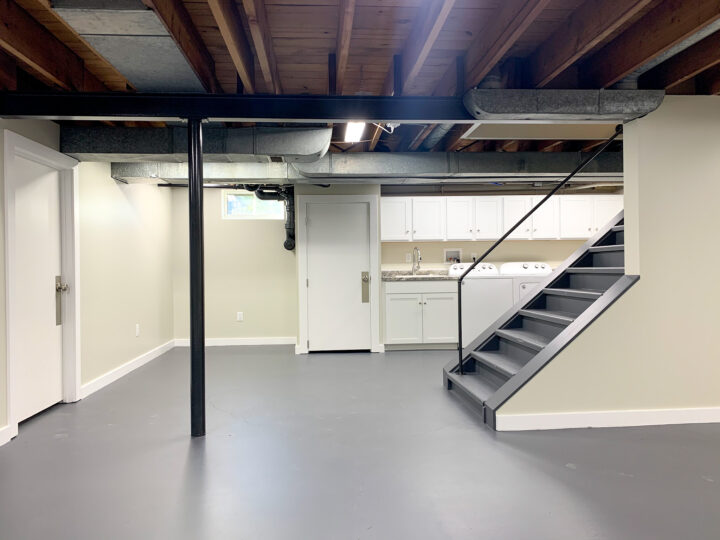Your basement is a valuable part of your home, but it can be a cold and uncomfortable place if it’s not properly insulated. In fact, up to 25% of heat loss in a home can occur through the basement ceiling.
If you’re considering insulating your unfinished basement ceiling, there are a few things you need to know. In this article, we’ll discuss the pros and cons of insulating your basement ceiling, as well as the different types of insulation available.

Should You Insulate Your Basement Ceiling?
There are several reasons why you might want to insulate your unfinished basement ceiling. Here are a few of the benefits:
- Increased energy efficiency: Basement insulation can help to keep your home warm in the winter and cool in the summer. This can lead to lower energy bills.
For example, according to the U.S. Department of Energy, insulating your basement ceiling can save you up to 15% on your heating costs. This can add up to hundreds or even thousands of dollars over the lifetime of your home.
- Improved comfort: A well-insulated basement will be more comfortable to use, whether you’re using it for storage, recreation, or finishing.
For example, if you use your basement for a home office or playroom, you’ll be more comfortable working or playing in a warm and dry environment.
- Reduced noise levels: Basement insulation can help to reduce noise levels from the outside world. This can be especially important if you live in a noisy area.
For example, if you live near a busy road or train tracks, basement insulation can help to reduce the amount of noise that comes into your home.
Cons of Basement Ceiling Insulation
There are a few potential downsides to basement ceiling insulation. Here are a few things to consider:
- Cost: Basement ceiling insulation can be a relatively expensive project.
The cost of basement ceiling insulation will vary depending on the size of your basement and the type of insulation you choose. However, in general, you can expect to pay between $1 and $2 per square foot.
- Labor: If you’re not comfortable doing the work yourself, you’ll need to hire a contractor.
Insulating a basement ceiling is a relatively simple project, but it can be time-consuming. If you’re not comfortable doing the work yourself, you can hire a contractor to do it for you.
- Space: Basement ceiling insulation can reduce the amount of storage space in your basement.
Depending on the type of insulation you choose, you may need to lose a few inches of headroom in your basement. This can reduce the amount of storage space you have available.
Types of Basement Ceiling Insulation
There are two main types of basement ceiling insulation:
- Fiberglass: Fiberglass insulation is a popular option because it’s relatively inexpensive and easy to install.
Fiberglass insulation is made up of small, glass fibers that are held together by a binder. It comes in rolls or batts that can be cut to fit between the joists in your basement ceiling.
- Foam insulation: Foam insulation is a more expensive option, but it’s also more effective at preventing heat loss.
Foam insulation comes in a variety of forms, including spray foam, rigid foam, and blown-in foam. Spray foam is the most effective type of foam insulation, but it’s also the most expensive. Rigid foam and blown-in foam are less expensive than spray foam, but they’re also less effective at preventing heat loss.
How to Insulate Your Basement Ceiling
If you’ve decided to insulate your basement ceiling, there are a few things you’ll need to do.
- Choose the right insulation: There are a variety of insulation materials and thicknesses available. Choose the type and thickness that’s right for your climate and needs.
- Measure and cut the insulation: Use a tape measure and a sharp knife to cut the insulation to the correct length and width.
- Install the insulation: There are a variety of ways to install basement ceiling insulation. Follow the instructions on the insulation packaging for specific instructions.
Conclusion
Should you insulate unfinished basement ceiling? Insulating your unfinished basement ceiling is a great way to improve the energy efficiency, comfort, and value of your home. If you’re considering this project, be sure to weigh the pros and cons carefully before making a decision.